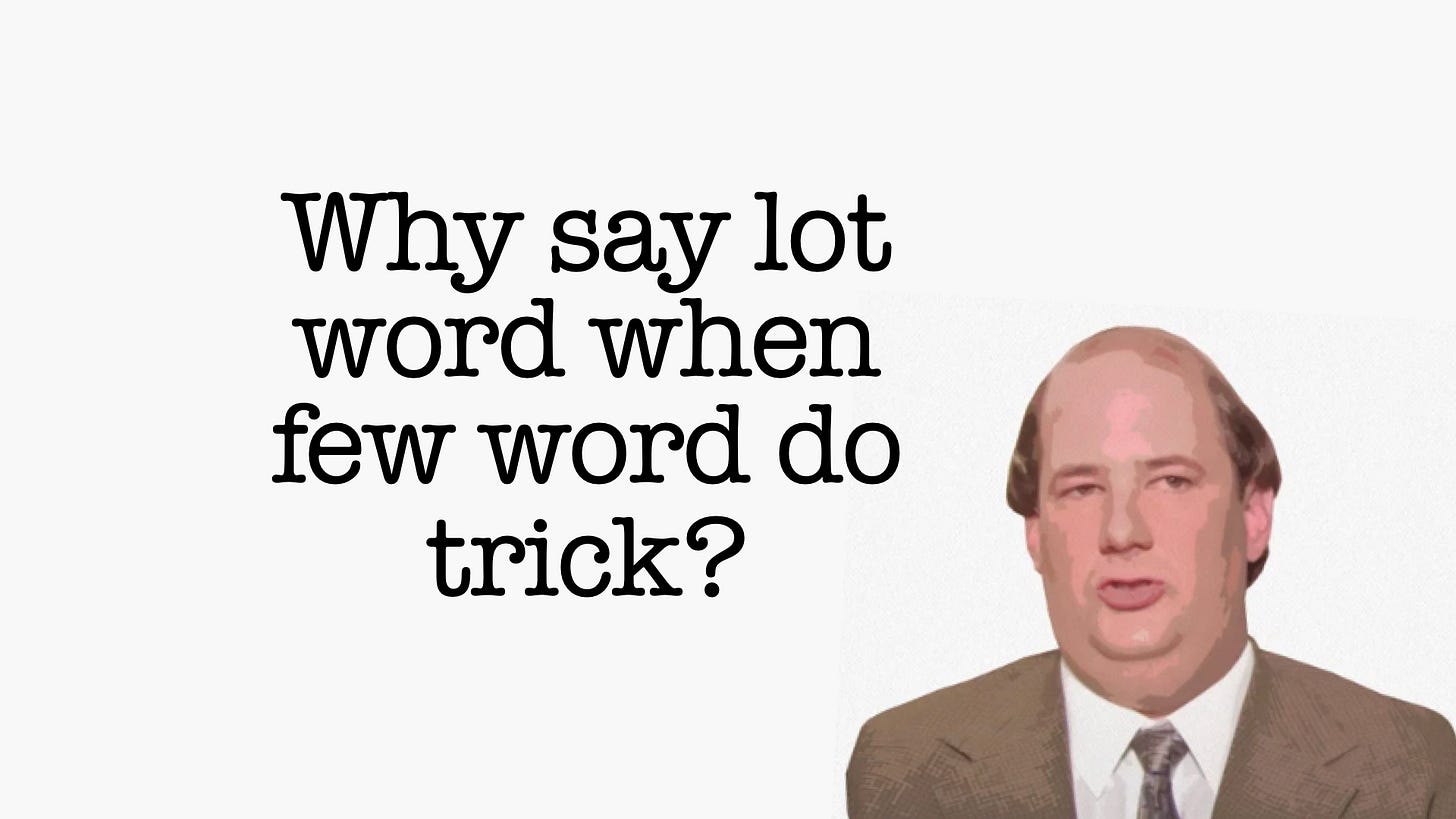“What is complicated is rarely useful. What is useful is rarely complicated.”
- Paul Rand
At the risk of celebrating too early, I’m 26 days through my 30-day writing challenge.
The biggest surprise from writing every day for the last 25 days: the essays that were (by far) the easiest to write are also the ones that people seemed to enjoy the most.
This is both flattering and annoying. The other ones I spent hours re-reading and re-writing don’t seem to have been worth the squeeze (on a relative basis).
If I had to tie common denominators between the essays that resonated the most, they were (i) topics I deeply enjoy, (ii) already am thinking about, or (iii) are happening to me that day. They are just genuine present-tense representations of my mind at the time of writing.
Those things make the writing less of a performance, more of a confession. So I stress less over how it sounds and more over if it accurately captures my mind. Which is a more enjoyable pursuit in and of itself, anyway.
Being simple wins
The world is performative.
And great performances are rewarded. Not performance as in doing things, but performance as in appearing to be doing things. Speaking in loops, making it sound important, and “faking it until you make it.”
I find this is relatively easy to fake, especially if you are extroverted or loud. Even incredibly successful or rich (not the same thing) people are insecure, like being agreed with, and reward self-reinforcing behavior. You don’t need to be good to appear good.
I also find these things don’t last. Performances end. And when they end, you look away from the bright lights and realize, oh, that was made up.
“Fugayzi, fugazi. It's a whazy. It's a woozie. It's fairy dust. It doesn't exist. It's never landed. It is no matter. It's not on the elemental chart. It's not fucking real.”
- Matthew McConaughey
Competence is simple. Quiet, clear, and concise.
It’s taking the infinity of inputs, data, whatever, distilling it into what matters, and saying only that. Knowing what to ignore.
Nothing to prove
Competence has nothing to prove to you.
Needing to prove something is destroying the lost art of conversation. Conversation itself is worth becoming competent at, as it is the clearest window into who people are.
Every week, you’re in performative meetings where, under the guise of conversation, everyone takes turns peacocking their egos and speaking as long as they possibly can to take up space and feel like they participated.
To speak clearly (and briefly) in that fog is revolutionary. You know you're closer to truth when your words begin to shrink.
More competent thoughts from Carmen on this topic here:
“Clarity, to me, is a sign that you cared enough to navigate through the haze of a chaotic world that came with no built-in instructions and decided to make this life your very own, and I deeply respect that.”
- Carmen
Asking better questions, conversing instead of taking turns speaking. Conversations die when two people just take turns speaking and waiting for their turn to speak. Real conversations are mostly questions, dynamic, back and forth, bouncy.
Competence uses zero jargon and makes hard ideas easy. Use small words, write short emails. In fact, don’t even finish your




soo true, the work that takes the least amount of time or effort tends to resonate the most because it comes straight from the heart, its authentic and its honest. I’ve started trying my best not to overthink my work whether it’s art or anything else really
love the reflections. It sounds like writing most authentically to your true voice was not only easiest but resonated the most with your audience. A great lesson for all of us 💕